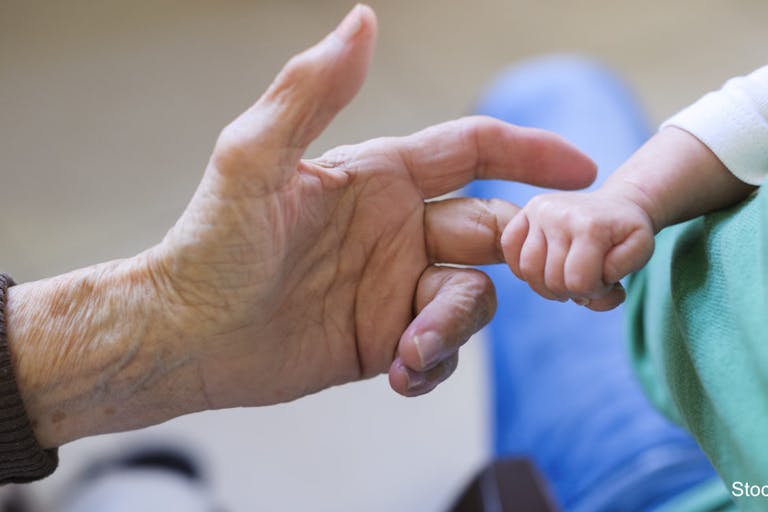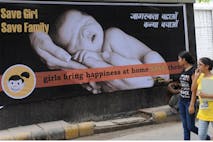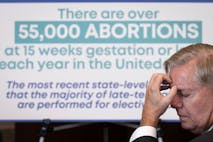
DC clinic removed from National Abortion Federation website after 'legal notice'
Carole Novielli
·We are urgently seeking 500 new Life Defenders (monthly supporters) before the end of October to help save babies from abortion 365 days a year. Your first gift as a Life Defender today will be DOUBLED. Click here to make your monthly commitment.

Elderly people in the UK are exploiting a loophole to have children by surrogates
The ethical pitfalls of surrogacy are on stark display in the United Kingdom (UK), where some elderly retirees are now having children via surrogates.
Elderly couples in the UK are increasingly turning to surrogacy outside the country to have children, who may be orphaned before they reach adulthood.
Surrogacy often involves the purchase of an economically disadvantaged woman’s womb (and possibly even her egg) by a wealthy couple or individual who desire to have a child.
Anti-surrogacy groups have called the decision to award parental rights to the elderly couples “unethical” and an “appalling loophole” that allows people to skirt the UK’s “domestic ban on commercial surrogacy practices.”
A husband and wife, both 72, recently won a court battle to become the legal parents of a 14-month-old boy born through surrogacy in California using the husband’s sperm and a donor egg. This is despite an acknowledgement from Mrs. Justice Knowles that the couple will be 82 when the boy begins secondary school and nearly 90 (if they live that long) when he reaches adulthood.
“They have begun parenting at a time in their lives when, despite their current good health, it is foreseeable that their health will decline and that one or both of them will become seriously incapacitated or die before B reaches his majority,” said the Justice.
Yet because there is no one else to care for him, Justice Knowles still gave her permission, and even used the case as a de facto encouragement for others to follow suit, calling it an “important welfare issue” and claiming it “offers some advice for those who may, in future, engage in a foreign or other surrogacy arrangement.”

The couple, whose names have not been revealed, decided to have another child after their son, “A,” died at the age of 27. “Having taken heart from the stories of other grieving parents who found solace in having other children following the death of a child, Mr. and Mrs. K decided to embark on a surrogacy journey in the hope of becoming parents once more,” Knowles said in her judgment, despite saying they are “adamant” that “B” is not an attempt to “replace A” or “manage their grief.”
This couple is not alone. Already, other elderly couples have entered into similar surrogacy arrangements; in just the last year, three such couples in the UK have been granted parental orders for babies born via surrogacy.
What almost certainly helped the first couple’s case is the fact that they are, as Knowles described them, “wealthy.”
But in truth, surrogacy largely involves wealthy couples purchasing the bodies of low-income women to provide them with children.
Women who become surrogates are at higher risk of developing conditions like gestational diabetes, hypertensive disorders of pregnancy, and bleeding complications after birth.
Dear Reader,
Every day in America, more than 2,800 preborn babies lose their lives to abortion.
That number should break our hearts and move us to action.
Ending this tragedy requires daily commitment from people like you who refuse to stay silent.
Millions read Live Action News each month — imagine the impact if each of us took a stand for life 365 days a year.
Right now, we’re urgently seeking 500 new Life Defenders (monthly donors) to join us before the end of October. And thanks to a generous $250,000 matching grant, your first monthly gift will be DOUBLED to help save lives and build a culture that protects the preborn.
Will you become one of the 500 today? Click here now to become a Live Action Life Defender and have your first gift doubled.
Together, we can end abortion and create a future where every child is cherished and every mother is supported.
Babies born via IVF are likewise at a higher risk for numerous complications.
Studies have also made it clear that taking babies from their birth mothers, even if they aren’t biologically related, can cause lifelong trauma. While a separation also happens during adoption, the adopted child is not intentionally created to be taken away from his or her birth mother; in a surrogacy arrangement, a child is created specifically with that intent.
If a baby is conceived using the surrogate’s egg, then he is denied his natural mother along with knowledge of his background, heritage, and even familial medical history. Even if he is not biologically related to the surrogate, at birth he is denied access to the woman whom he has known for nine months in the womb, and it is her voice and her heartbeat that he knows. This separation is traumatizing.
Lexi Ellingsworth, co-founder at Stop Surrogacy Now UK, slammed the ruling. “There are no upper age limits for commissioning parents in the UK, or for surrogate mothers, and the ‘parental order pathway’ would continue to allow Britons to go abroad to buy babies,” she said. “This appalling loophole which enables people to get around our domestic ban on commercial surrogacy practices must be closed by the Government immediately.”
Also harshly critical of the ruling was Helen Gibson, founder of Surrogacy Concern.
“We are appalled to see a parental order awarded in this case. This child would have been better off being placed by the local authority into the care of another family, not being left to be raised by people likely to be dead before he reaches the age of majority,” she said.
“Commissioning a child through surrogacy is always unethical and exploitative,” she added, “but to do this at the age of 72, following the death of an adult son, is abhorrent and an abuse of this little boy.”
The fictional “The Handmaid’s Tale” has become a reality, as abortion activists have warned — but it isn’t because of pro-life laws; it is reflected in surrogacy, an arrangement in which a class of (largely) economically disadvantaged women is paid to gestate babies for other women to raise.
This issue already fails to keep the child’s rights in mind; an additional layer of complications and considerations results when elderly parents choose to create children via surrogacy.
Live Action News is pro-life news and commentary from a pro-life perspective.
Contact editor@liveaction.org for questions, corrections, or if you are seeking permission to reprint any Live Action News content.
Guest Articles: To submit a guest article to Live Action News, email editor@liveaction.org with an attached Word document of 800-1000 words. Please also attach any photos relevant to your submission if applicable. If your submission is accepted for publication, you will be notified within three weeks. Guest articles are not compensated (see our Open License Agreement). Thank you for your interest in Live Action News!

Carole Novielli
·
Human Rights
Cassy Cooke
·
International
Cassy Cooke
·
Abortion Pill
Bridget Sielicki
·
Guest Column
Right to Life UK
·
International
Melissa Manion
·
Human Rights
Cassy Cooke
·
International
Cassy Cooke
·
Investigative
Cassy Cooke
·
Human Rights
Cassy Cooke
·
Analysis
Cassy Cooke
·